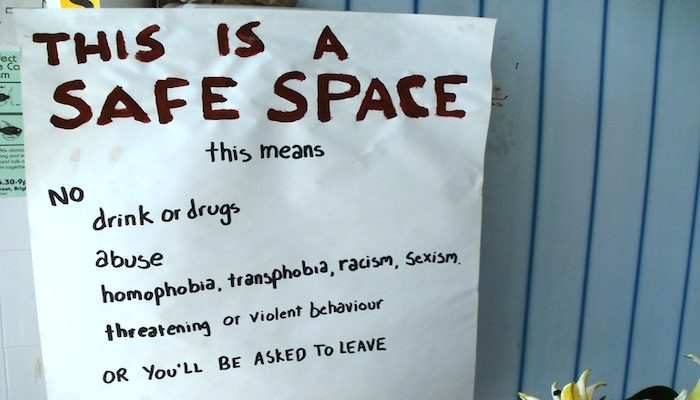
Incidents in which students opposed controversial talks have been reported across US campuses. Students at a number of universities protested speakers, hindered or blocked their appearances, and in some cases reverted to violence. At Middlebury College, in March 2017, Charles Murray, the controversial co-author of The Bell Curve – a book that linked intelligence and race – was prevented from speaking publicly and attacked after a live-streamed discussion with a professor. Heather Mac Donald, received disapproval after her 2016 publication The War on Cops, in which she criticizes the Black Lives Matter movement. When she spoke at Claremont College students blocked entry to the building, demanded the talk to be stopped and chanted down the speaker during Q&A.
What are we to make of these expressions of dissent? Are students enacting a healthy expression of free speech or are we witnessing growing intolerance and forms of bounded speech? Free speech is intended to prevent censorship without fear of government retaliation or social sanctioning, it is meant to give people a right to express their ideas publicly, however detesting or disturbing. For universities, the free exchange of ideas is a foundational principle. It is enshrined in what we call academic freedom and one that draws academics to conduct their research and to disseminate their thoughts and ideas through the ivory tower. Students likewise enter universities to learn from their professors, from each other, and in the process are encouraged to challenge their own thinking with the goal to emerge as critical thinkers upon graduation.
University campuses, as such, have long offered a stage on which social and political confrontation are played out. Let’s keep it that way. Indeed, students from various campuses recently endorsed the value of open expression in higher education. In their statement of principles, they affirmed that “while some speech may be objectionable and even hateful, constitutionally protected speech ought to be held and enforced as the standard and must not be infringed upon.” These student-led initiatives are laudable as they support a basic and necessary tenant of civil discourse across (sometimes stark) divisions. Yet again there is a much more insidious development underway, and found in a growing oversensitivity of college students, demanding not to be confronted by words and ideas they do not like or which they detest. A 2016 Gallup survey for instance found that 54% of college students agree that the climate on their campus prevents some people form saying things they believe because others might find them offensive. In practices, this has given rise to protests against unwanted speakers on college campuses but also includes demands for Professors to issue “trigger warnings” during class time if something in a course might cause a strong emotional response or to condemn actions that constitute veiled “microagressions.”
While I see nothing wrong with giving trigger warnings when teaching classes on genocide, religion or identity politics, for example, there is a danger in focusing more on ensuring political correctness and protecting students at the expense of allowing them to think for themselves, to disagree and to dispute. An environment in which free speech is increasingly delimited leads to intolerance and creates a paternalistic space that stifles rational argumentation. It is perhaps one of the reasons why students choose to oppose speakers who they disagree with instead of confronting them on the merits of their work. In short, if we want our students to tolerate difference we – as educators – ought to create a space in which students are free to speak their mind and to encourage them to evaluate the ideas of others. This is not an easy task but one worth pursuing.
Further Reading on E-International Relations
- Considering the Whole Ecosystem in Regulating Terrorist Content and Hate Online
- What to Do When You Don’t Like a Topic You Teach?
- Getting the Most Out of Class Discussion
- The Politics of Teaching International Relations in the Arab World: A Critique
- The Appeals and the Limits of Digital Education in the Post-Covid Era
- What English Language Teachers Can Teach IR about Pedagogy